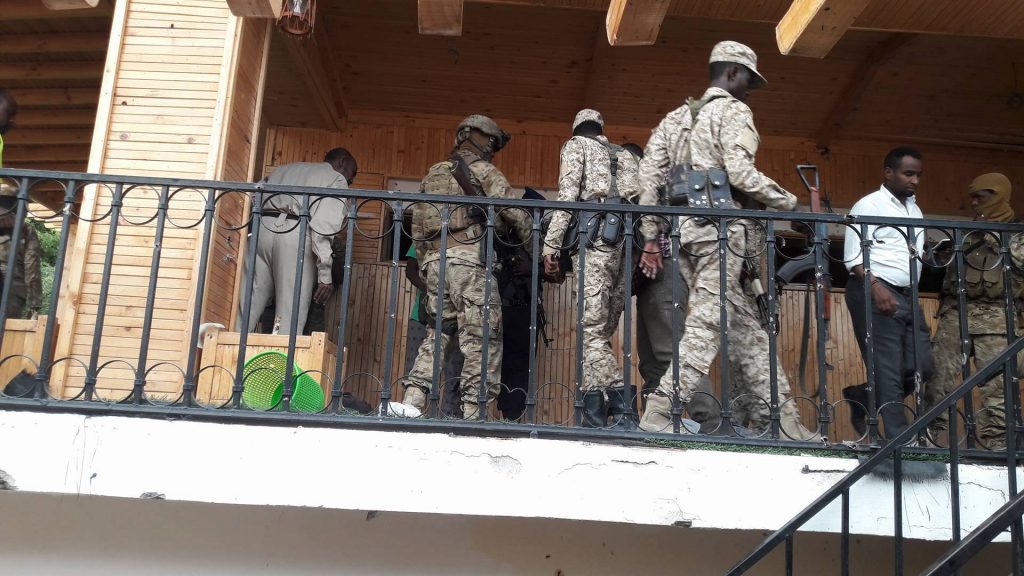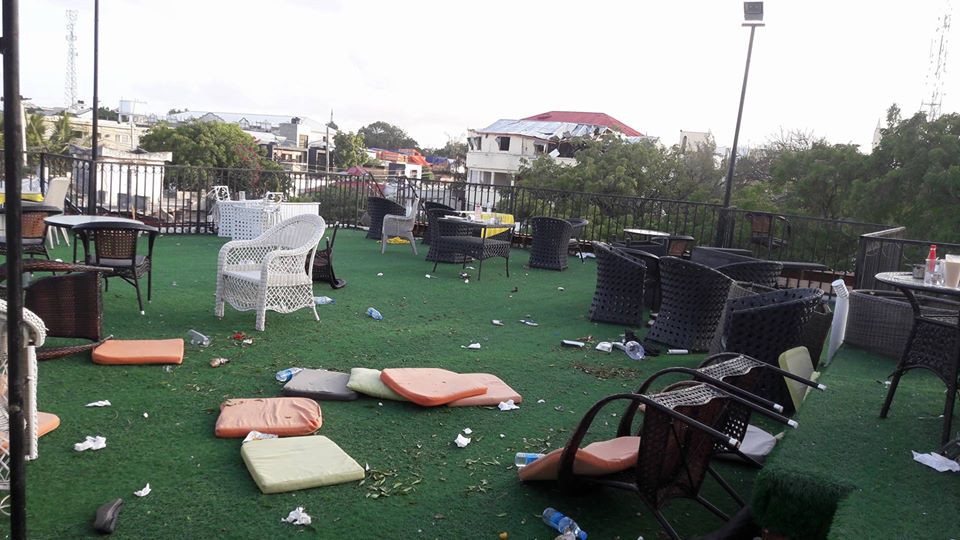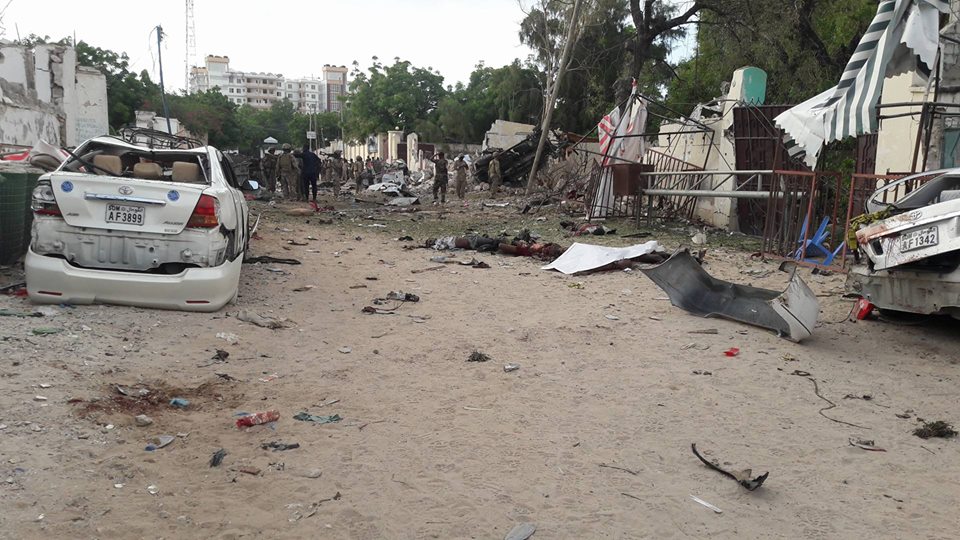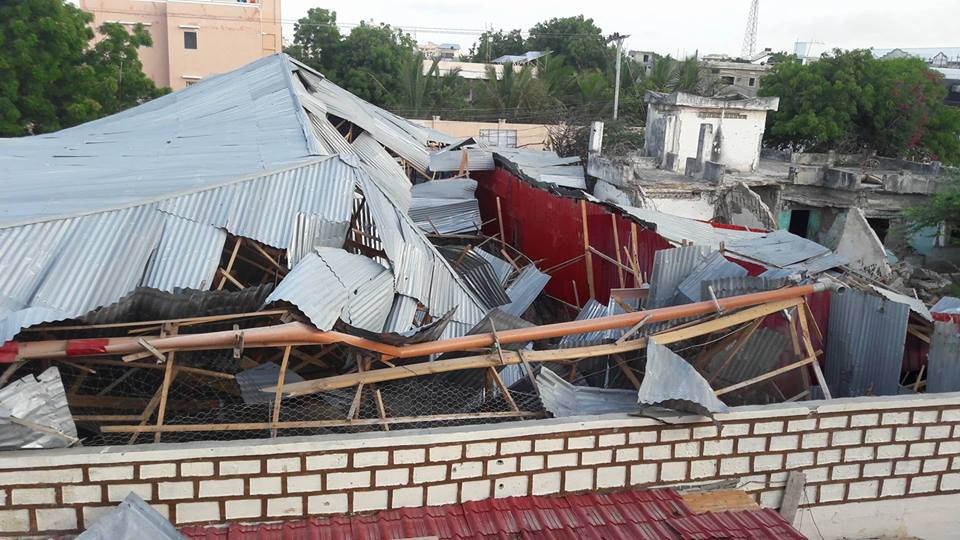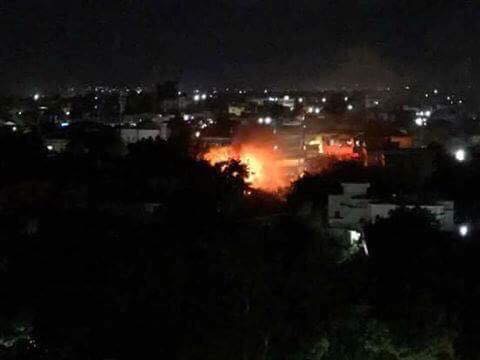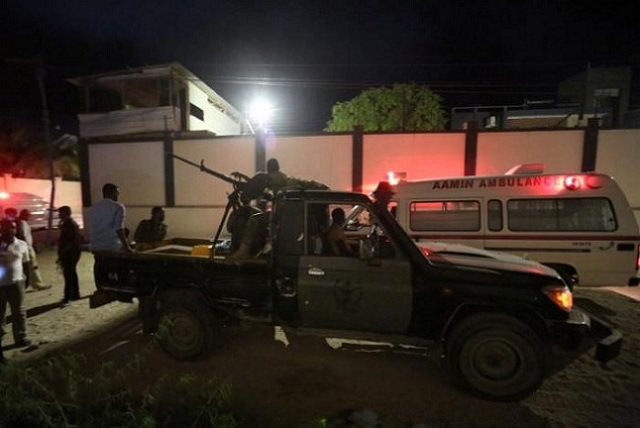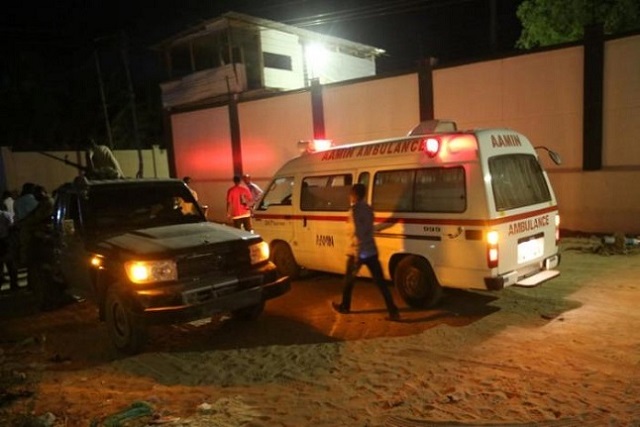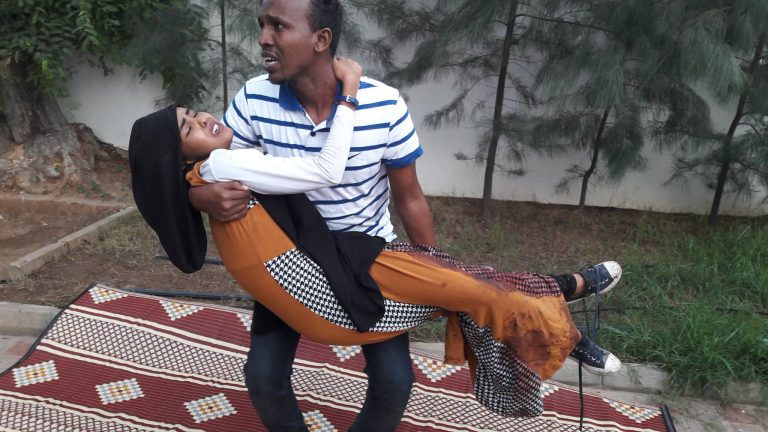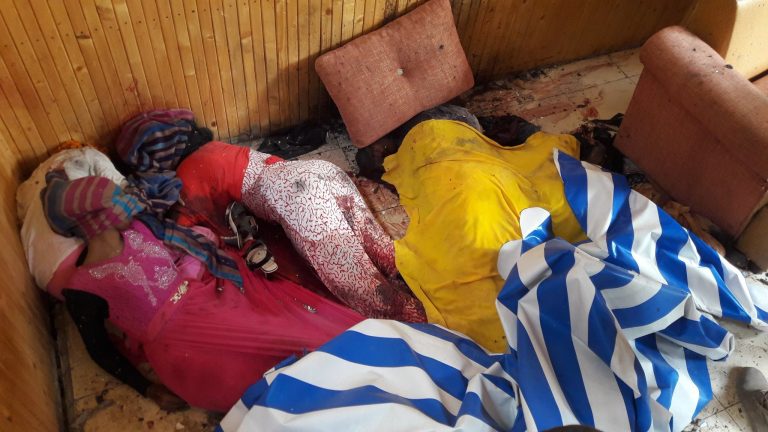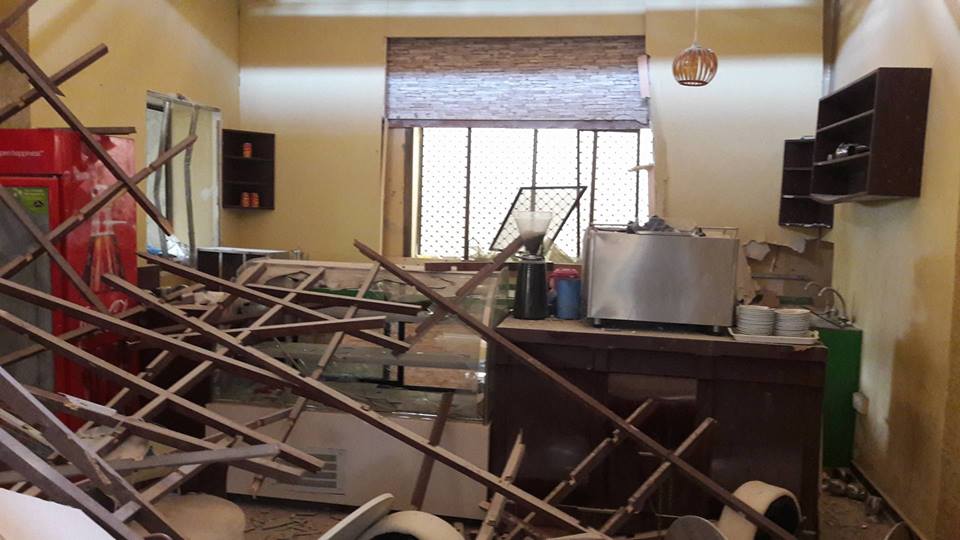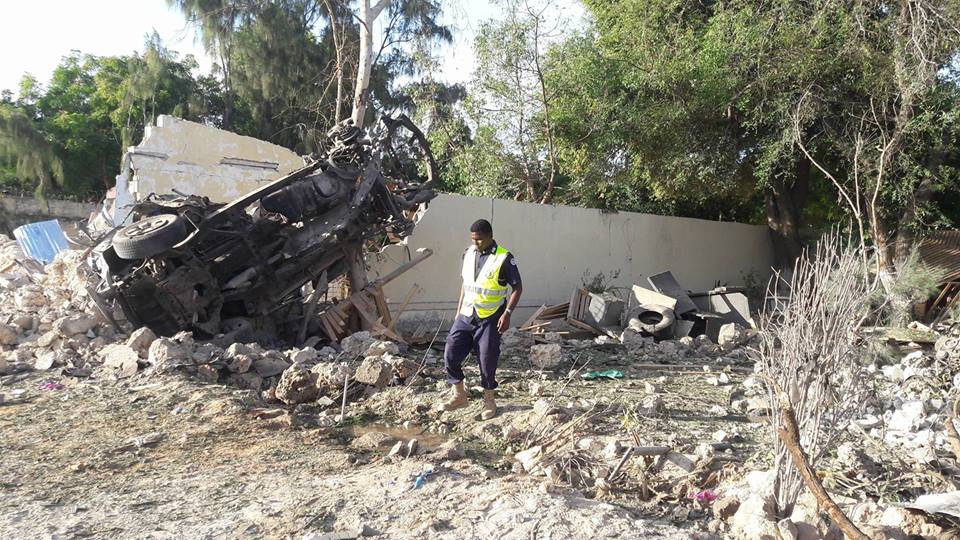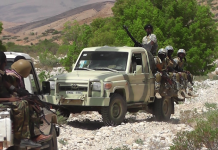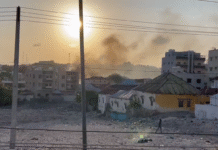Somali survivors early Thursday described harrowing scenes of the night-long siege of a popular Mogadishu restaurant by al-Shabab Islamic extremists that was ended by security forces.
At least 20 people, including foreigners, were dead, police and an ambulance driver said. Survivors of the attack were led by soldiers from the Pizza House restaurant building. The injured were taken by ambulances.
Al-Shabab claimed responsibility as the restaurant was under siege.
Soldiers surrounded the restaurant building and used guns mounted on the backs of vehicles to neutralize the militants. Troops entered the ground floor while the insurgent snipers held positions upstairs.
All five attackers were killed and after dawn the soldiers secured the building, said senior Somali police office Capt. Mohamed Hussein. The troops’ efforts to take control of the Pizza House restaurant were slowed by the darkness of night, forcing them to wait until morning, said Hussein.
Survivors recounted harrowing stories of hiding under tables, as armed attackers continued firing in the restaurant and hunted for patrons. Attackers moved from room to room, looking for people, said a survivor.
“I never thought I would have the chance to see the sun again. They were killing people on sight,” Saida Hussein, a university student, told The Associated Press. She said she survived the attack by hiding behind a large table downstairs.
Another survivor, Aden Karie, was wounded by an attacker who spotted him moving behind a curtain in the dark room.
“He shot at me twice and one bullet struck me on the leg,” said Karie as he was taken to an awaiting ambulance.
The roofs were blown off the restaurant and nearby buildings from the powerful blasts.
The bodies of five girls thought to have been killed by the militants were found in the restaurant, said police. Inside the building, the body of a Syrian man who worked as a chef at restaurant lay near the rubble of a blood-spattered and bullet-marked wall.
The attack began Wednesday evening a car bomb exploded at the gate to the restaurant and then gunmen posing as military forces stormed into the establishment.
An ambulance driver with the Amin Ambulance service, Khalif Dahir, said early Thursday they had carried 17 bodies and 26 wounded people. Most of the victims were young men who had been entering the Pizza House when the vehicle exploded, Hussein said.
The gunmen “were dressed in military uniforms. They forced those fleeing the site to go inside” the restaurant, witness Nur Yasin told the reporters
Wednesday night’s blast largely destroyed the restaurant’s facade and sparked a fire. While al-Shabab claimed to have attacked the neighboring Posh Treats restaurant, which is frequented by the city’s elite and was damaged in the blast, security officials said the Pizza House was targeted instead.
Security forces rescued Asian, Ethiopian, Kenyan and other workers at Posh Treats as the attack continued, Hussein said.
The Somalia-based al-Shabab often targets high-profile areas of Mogadishu, including hotels, military checkpoints and areas near the presidential palace. It has vowed to step up attacks after the recently elected government launched a new military offensive against it.
Al-Shabab last year became the deadliest Islamic extremist group in Africa, with more than 4,200 people killed in 2016, according to the Washington-based Africa Center for Strategic Studies.
The extremist group also faces a new military push from the United States after President Donald Trump approved expanded operations, including airstrikes, against al-Shabab. On Sunday, the U.S. military in Africa said it carried out an airstrike in southern Somalia that killed eight Islamic extremists at a rebel command and logistics camp.
Somalia President Mohamed Abdullahi Mohamed confirmed that airstrike and said such attacks would disrupt the group’s ability to conduct new attacks.
With a new federal government established, pressure is growing on Somalia’s military to assume full responsibility for the country’s security. The 22,000-strong African Union multinational force, AMISOM, which has been supporting the fragile central government, plans to start withdrawing in 2018 and leave by the end of 2020.
Also Wednesday, the U.N. Security Council unanimously adopted a resolution extending the U.N. political mission in the Horn of Africa nation, which is trying to rebuild after more than two decades as a failed state, until March 31, 2018. The resolution recognized that “this is a critical moment for Somalia.”
NOTE: Photos consists of Graphic Phootage
